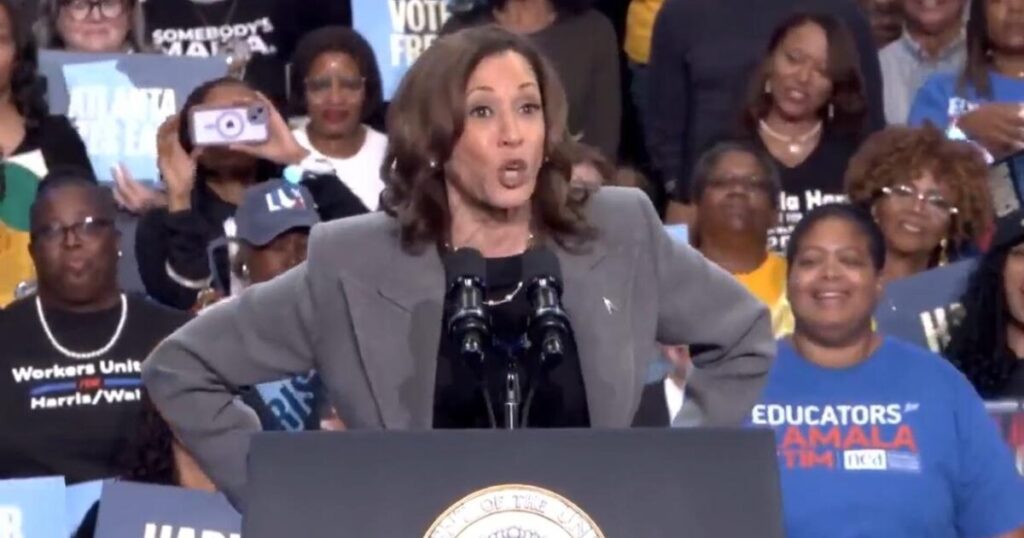On Saturday, Kamala Harris made headlines during her campaign stop in Atlanta, Georgia, where her appearance was notably accompanied by R&B singer Usher at the Lakewood Amphitheater. This event was marked by a significant lack of turnout, leading to speculation about her popularity and effectiveness as a campaigner. Prior to joining Harris on stage, Usher engaged the audience, affirming his support for her, to which the crowd responded positively. However, critical observers noted that Harris’s team seemingly needed the celebrity boost to draw a crowd, questioning her outreach abilities independent of star power.
Earlier that same day, in Detroit, Harris appeared visibly exhausted and unwell, delivering a brief address of only six minutes and thirty-six seconds. The stark contrast to the lengthy campaign speech by her opponent, Donald Trump, who spoke for over an hour, highlighted her struggles in connecting with voters. Social media commentary reflected a sense of disappointment in her performance and raised eyebrows about her engagement, especially since she was accompanied by fellow artist Lizzo, who did not perform despite the high-profile setting. The brevity of her speech left many questioning if she was fit for the rigors of campaigning.
Her subsequent performance in Atlanta drew attention for all the wrong reasons. Critics suggested that Harris appeared disoriented and questioned whether she had been drinking before her appearances. Some clips shared online depicted her making statements that came across as awkward and forced, contributing to the perception of her being out of touch. Observers speculated whether the stress of her campaign and the scrutiny she faced were affecting her demeanor, leading to concerns about her preparedness and capability to handle the pressures of the campaign trail.
Furthermore, Harris’s speech included a return of her perceived “fake accent,” which triggered more derision from critics who have long pointed out this characteristic as a form of inauthenticity. The use of a different speaking style while campaigning drew negative reactions, further branding her presentations as cringe-worthy. Critics noted how her speeches seemed disconnected from her target audience, questioning her sincerity and making it difficult for voters to resonate with her message.
Harris’s handlers faced scrutiny as well, with claims that they were fearful of providing honest feedback regarding her performance, fearing her history of reacting poorly to criticism. This dynamic raised red flags about the nature of her campaign team’s support structure, suggesting a lack of genuine feedback could lead to further missteps as the campaign progressed. The atmosphere around her speeches lacked confidence, and this uneasiness shown by her team added to the overall impression of a struggling campaign.
In summary, Kamala Harris’s campaign appearances in Atlanta and Detroit revealed significant challenges she faces as a candidate. The reliance on celebrity to attract attention, her visible exhaustion, and awkward public speaking moments have cultivated skepticism about her candidacy. As scrutiny mounts over her ability to engage voters effectively and project a genuine persona, many are left questioning whether she can sustain the campaign’s momentum and confidence needed to compete in the political arena leading up to the election.

